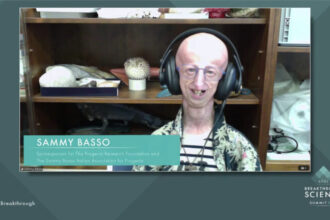Memory and thought are something many people take for granted, using them daily and thinking little of them. Alzheimer’s disease, however, robs people of these basic abilities and leaves their friends and family distinctly aware not only of this loss, but of their own abilities. Alzheimer’s is a progressive disease with the symptoms usually starting gradually and building in severity as the disease moves through its stages. Making memory-building activities part of your Alzheimer’s care plan from the first signs of the disease helps strengthen your elderly parents’ cognitive abilities, memory, and thought processing, and gives your brain some useful exercise as well.
Memory-building activities for elderly adults with Alzheimer’s do not have to be like drilling school children. In fact, activities that are fun and exciting keep your parents’ attention longer and provide more benefits than boring or tedious activities.
Try some of these activities for stimulating your parents’ minds and improving their cognitive abilities while strengthening their memory:
• Bingo. Few games are more familiar than Bingo. This is a game played by all ages in all stages of life. Simple, straightforward, and easily adaptable to the interests of those playing, Bingo is fun and stimulating. Use a variety of different boards so your parents match colors, numbers, foods, names, body parts, animals, and other items to keep the game engaging and interesting.
• Memory. The classic game used by parents to help their young children build their memory skills is just as effective for elderly adults. Make the game more age-appropriate by using adult-themed cards such as art work, photographs of travel locations, or non-cartoon animals. Seniors in the earliest stages of the disease can play the traditional way with the cards face-down and the senior flipping over two at a time in an effort to make matches. For seniors with more advanced memory problems, play the game with the cards facing up, letting them find matches in this way.
• Jigsaw Puzzles. Putting together puzzles uses critical thinking and memory of the overall image. Use puzzles with very large pieces and simple, straightforward designs so that the puzzles are easy enough to put together but still challenge their thought processes.
• Crosswords. Simple crossword puzzles require focusing on the individual letters, remembering a list of words, and spelling. All of these exercise the brain and boost cognitive processing. Look for books for large print and a wide range of words to keep the activity exciting.
• Board Games. Family game night is enjoying a resurgence and it is not just a way to encourage the generations of your family to spend time together. It is also a way to get your elderly parents thinking, remembering, and enjoying themselves. Choose board games with tangible pieces such as movers, dice, and cards so your parents have to think about several tasks each turn. Traditional favorites such as Candyland and Life are straightforward enough even for seniors with cognitive challenges to enjoy without frustration. “Junior” versions of classic games such as Clue and Monopoly offer simplified gameplay and bolder, more approachable graphics for elderly adults with memory or cognitive challenges.
If you have an aging loved one and are considering home care services, contact Interim HealthCare today.








